Albert Maysles
ProducerDirectorActorExecutive ProducerWriter
-
Birthday
-
Zodiac Sign
-
Genres
13
Total Films
Also known as (female)
Place of Birth
-
Birthday
-
Zodiac Sign
-
Genres
13
Total Films
-
Also Known As (female)
-
Place of Birth
-
Birthday
-
Zodiac Sign
-
Genres
13
Total Films
Also known as (female)
Place of Birth
-
Birthday
-
Zodiac Sign
-
Genres
13
Total Films
-
Also Known As (female)
-
Place of Birth
actor
13 Works
producer
9 Works
director
105 Works
writer
1 Works
other
47 Works
Robert Drew & Associates at the Museum of Tolerance
In 1998, documentary filmmaker Robert Drew and his associates attend the Museum of Tolerance.Year:
2016

Mario Ruspoli, Prince of the Whales
Colleagues, friends and specialists pay tribute to the filmmaker Mario Ruspoli in a portrait that mixes encounters, archive images and film excerpts. With testimonies from Richard Leacock, Albert Maysles, Edgar Morin, D.A. Pennebaker and others.Year:
2011

Capturing Reality
From cinema-verite; pioneers Albert Maysles and Joan Churchill to maverick movie makers like Errol Morris, Werner Herzog and Nick Broomfield, the world's best documentarians reflect upon the unique power of their genre. Capturing Reality explores the complex creative process that goes into making non-fiction films. Deftly charting the documentarian's journey, it poses the question: can film capture reality?Year:
2008
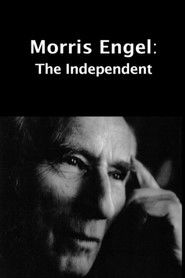
Morris Engel: The Independent
Short documentary on the life and work of photographer and filmmaker Morris EngelYear:
2008
Wild Blue Yonder
A portrait of the late documentarian David Maysles by his daughter, Celia.Year:
2007

A Walk Into the Sea: Danny Williams and the Warhol Factory
Esther Robinson's portrait of her uncle Danny Williams, Warhol's onetime lover, collaborator and filmmaker in his own right, offers a exploration of the Factory era, an homage to Williams's talent, a journey of family discovery and a compelling inquiry into Williams's mysterious disappearance at age 27.Year:
2007
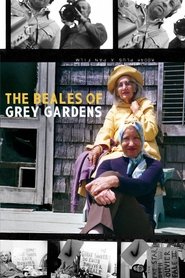
The Beales of Grey Gardens
Mother and daughter - Big Edie and Little Edie Beale - live with six cats in a crumbling house in East Hampton. Little Edie, in her 50s, who wears scarves and bright colors, sings, mugs for the camera, and talks to Al and David Maysles, the filmmakers. Big Edie, in her 70s, recites poetry, comments on her daughter's behavior, and sings "If I Loved You" in fine voice. She talks in short sentences; her daughter in volumes. The film is episodic: friends visit, there's a small fire in the house, Little Edie goes to the shore and swims. She talks about the Catholic Church. She's ashamed that local authorities raided the house because of all the cats. She values being different.Year:
2006
After Frank
Filmmaker, Walter Forsyth sets out on a journey to make a tribute film about photographer/filmmaker, Robert Frank, deconstructing the documentary form along the way. With appearances by Albert Maysles, Nick Broomfield, ex-Rolling Stone Mick Taylor, Alfred Leslie and Matt Damon. "He pulled a sad poem right out of America, taking his place among the great poets of our time" - Jack Karoac.Year:
2005

Michael Moore Hates America
Michael Wilson, like the subject of his film, is trying to get an interview with a multi-millionaire; however, in this case, that millionaire is Michael Moore himself.Year:
2004
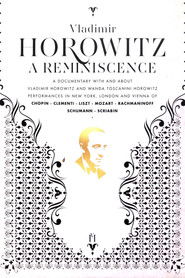
Horowitz: A Reminiscence
Wanda Horowitz reminisces about her husband, the great pianist Vladimir Horowitz, with clips from his television appearances.Year:
1993
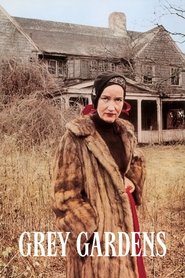
Grey Gardens
Edie Bouvier Beale and her mother, Edith, two aging, eccentric relatives of Jackie Kennedy Onassis, are the sole inhabitants of a Long Island estate. The women reveal themselves to be misfits with outsized, engaging personalities. Much of the conversation is centered on their pasts, as mother and daughter now rarely leave home.Year:
1976
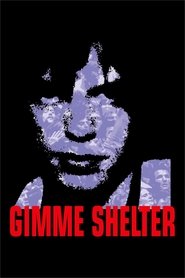
Gimme Shelter
A detailed chronicle of the famous 1969 tour of the United States by the British rock band The Rolling Stones, which culminated with the disastrous and tragic concert held on December 6 at the Altamont Speedway Free Festival, an event of historical significance, as it marked the end of an era: the generation of peace and love suddenly became the generation of disillusionment.Year:
1970
The Maysles Brothers
The Newsweek critic, Jack Kroll, interviews Albert and David Maysles about their new film, Salesman (1968).Year:
1969